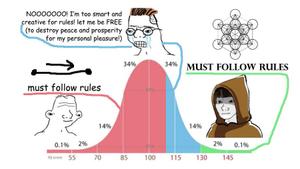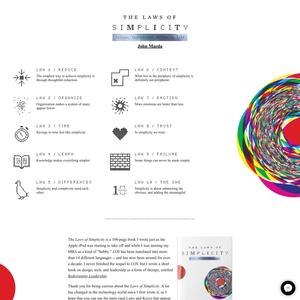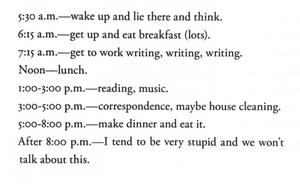
Something went wrong trying to save http://papert.org/articles/PapertsPrinciple.html.


The designer's guide to Gestalt Theory
By Sam Hampton-Smith. December 11, 2018
Use the Gestalt principles to make your designs more coherent.
In the 1920s, a group of psychologists in Germany developed a series of theories of visual perception known as the Gestalt Principles, or Gestalt Theory. Along with systems such as grid theory, the Golden Ratio and colour theory, the Gestalt Principles form the basis of many design rules we follow today.
It's important for designers to learn these principles. If you understand what they tell us about how we perceive visual objects and their arrangements, you'll be able to create a more coherent design that will better connect with your audience.
What is Gestalt Theory?
The term Gestalt means 'unified whole', which is a good way of describing the over-arching theme behind the Gestalt principles. These refer to the way in which humans, when looking at a group of objects, will see the whole before we see the individual parts.
If...

Basic screen rules:
- Don't check social media during work hours.
- Call instead of text.
- Keep your phone on silent whenever possible.
- Keep your phone on black and white mode.
- Keep a running list (on paper) of everything that comes up that you want to do with your phone/device as the impulses arise (like look something up, text someone, etc.) then do them all at once, once or twice a day (and likely, see how many aren't really important.)
- Find analog ways of doing all sorts of things: paper cookbooks, separate alarm clock, paper planner, kitchen timer, wristwatch, etc.
- Look closely at the compulsion to take photos. Save photo-taking as though you still buy disposable cameras with only 24 shots on them.
- Spend more time thinking about how you do want to use your time, rather than just about using screens less.
- No notifications enabled.
Almost without exception, there is only one way to make a great deal of money in the business world — and that is in one’s own business. The man who wants to go into business for himself should choose a field which he knows and understands. Obviously, he can’t know everything there is to know from the very beginning, but he should not start until he has acquired a good, solid working knowledge of the business.
The businessman should never lose sight of the central aim of all business — to produce more and better goods or provide more and better services to more people at lower cost.
A sense of thrift is essential for success in business. The businessman must discipline himself to practice economy wherever possible, in his personal life as well as his business affairs. “Make your money first, then think about spending it,” is the best of all credos for the man wishing to succeed.
Legitimate opportunities for expansion should never be ignored or overlooked. On the other...
creating my own rules 🕊️




- Surround yourself with people who's eyes light up when they see you.
- Slowly is the fastest way to get to where you want to be.
- The top of one mountain is the bottom of the next, so keep climbing.
Principles in development for Liberated Relationships:
Radical honesty: No omissions, no white lies, no projections. Ask the questions you really want answered, speak your truth, and let the relationship build inside all that reality. Just a note from experience, the small lies can be the hardest tot shop telling. "No I don't want to get on the phone right now, can we just text?"; "I'm busy catching up on my reality TV show"; "Real cow milk ice cream"; or "I know I said I didn't want to ___, but now I do." However, the more you practice this, the more you will find yourself spending your waking hours in the ways you want to, the ways that honor the miracle of your existence, which was not given to you to waste in polite avoidance of hurting people's feelings. You will find that you can be honest and kind, you can be honest and compassionate.
Acknowledge the dynamics, then keep growing. Have an understanding on the front end of the race, class, gender, ability, geographic, and...
Never suppress a generous impulse.
Become self-less; obliterate yourself from the equation; spare the soil your indentation; design as if you are not designing; build as if you are not building; as if no one will remember you. They will not need to.
"Never take a picture of something that you can find on a postcard."


no lying
pure fucking fun
first principles first
as local as possible
hack the planet
The three rules for complex systems:
- a rule of generation
- a rule of reduction
- a rule of maintenance (or a tendency to persist)
Most people do not trust their own beliefs. The essence of genius is simply to trust yourself—to infer that whatever seems most true in your heart is most true in reality—and for everybody else, too, despite whatever they may claim.
There is hardly anything more painful than lacking the courage to voice a belief, only to hear someone else express it later.
When we admire the Great Men and the Great Books, we often do so mistakenly: For the great men and great books are not examples of revering great men and great books! The Great Men and Great Books are often examples of self-reliant individuals disrespecting the previous Great Men and Great Books by irreverently trusting their own inner calling. If you really admire Great Men and Great Books then you must have the courage and self-trust to not put them on a pedestal; you must wake up every morning trusting that your inner light is every bit as bright.
Learning to interpret your inner light is a skill that must be...
Rules for Radicals
- Think about institutions
- Pose social change as problem solving
- Embrace diversity
- Be specific
- Listen to the people
- Self-government is possible
- Everything changes
- Map power
- Collective ownership can work
- Human beings are part of nature too
- All institutions are constructed, so can be constructed differently
- No panaceas
- Complexity does not mean chaos.